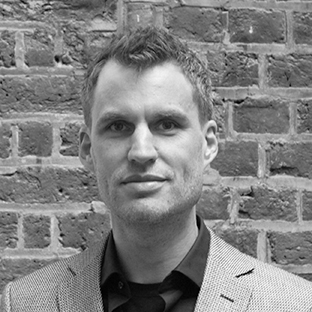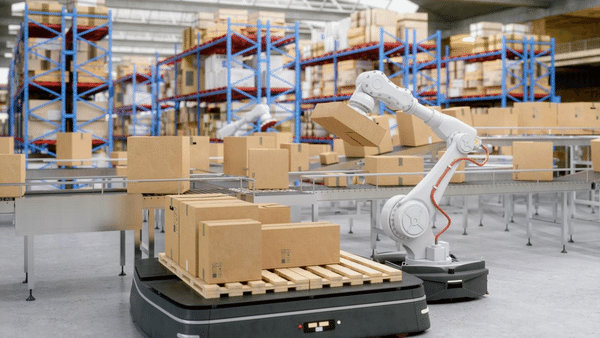How can the framework that I developed in order to help track and respond to the changes precipitated by crisis offer a new way to think about how we track individual goals and performance?
I had practiced my archery as much as I could during the winter months. I was fitter than ever, I had met all my training goals, worked hard on areas of weakness and perfected some small technical changes I wanted to make based on a thorough review of my performance the previous year. Over a five-year plan I had set clear goals for the levels of performance I wanted to achieve and the activities that formed the process of getting there. Above all, my training was better than ever and I was feeling confident. I knew over the next few years I could make massive improvements in my results, and I had a plan to do it.
Year one of my plan I crashed my bike and missed three months of the season in recovery. The next year was my best ever. Year three I was hospitalised with glandular fever, the next I developed the archer’s equivalent of the yips in golf and my performance tanked, and year five I had study commitments that took time away from practice. While a huge part of preparation is having tried and tested contingencies for coping with the unpredictable, there are times when so many of the factors that influence our performance lie outside of our best efforts at anticipating them.
My archery experience and subsequent work in local government tracking ‘best value performance indicators’ against largely arbitrary five-year targets perhaps explains why I am instinctively suspicious of grand plans and targets when working with uncertainty and complexity. We can't set targets for reducing homelessness or obesity and hold a single person to account for them being met; the impossibility is such that it will often lead to the work being skewed to find ways of reaching the target rather than actually making a difference to these presenting issues. As John Seddon notes, nothing is more certain to create dysfunction within an organisation. Yet all too often the target-setting culture is inappropriately applied to areas of complexity where expectations of individual control shouldn't be present. Throw in a dash of paternalism and you have a recipe for a dysfunctional corporate culture. Nowhere is this brought to life more vividly than in that contribution to unnecessary overheads: the workplace performance appraisal scheme.
Of course, we want and expect good performance of ourselves and our colleagues. A crucial part of this is being able to distinguish between those aspects of our work over which we have control and those where we don’t. Confuse the two and we can end up trying to hold individuals to account for systemic challenges that are beyond their control. Have you been part of an appraisal that includes phrases like ‘it seems you struggle with implementation’, ‘perhaps you’re just not goal-orientated enough’, ‘you need to work harder’, ‘you do realise how important this is, don’t you?’ Such comments suggest that the problem is you – you don’t have the skills, the motivation, the work ethic to thrive in this company. Worse, they suggest that to address the problem is to get you to change. And so we have a proliferation of competency frameworks, personal improvement plans, training programmes, supervision meetings and the like, all born of the same hierarchical, status-driven, parent-child relationship that so often dominates society.
How many times have you instead been asked to talk through how something played out, in recognition that you are working within an ever-changing context where outcomes can’t be accurately predicted? If archery had been my profession, what would my coach have made of my performance across those five years? Sure, when things are going well I can give a good account of my performance and I might have got a bonus in one of the years. But when things are tougher, when there are things happening that you can’t predict nor control, what happens then? I’d probably have been put on a training course and helped to develop an improvement plan to rectify the deficits my performance so obviously highlighted.
But here's the thing. So far as I was able, I was still attending to my fundamentals, even when my results were poor. I was still doing my foundational work: the training and preparation. A training course wouldn’t have changed that, it would take time away from it. It’s of course important that we take care of our foundations at work too: managing costs, ensuring our legal and statutory duties are met, satisfying customer need and so on. These are crucial processes. But we mustn't mistake the metric with the purpose or the result with the process. The map is not the territory.
How do we balance this need to be operationally effective and focused with the need to be innovative and responsive? If we do the former without the latter we run the risk of becoming a Kodak or Blockbuster; if we do the latter without the former we run the risk of being stuck in perpetual early stage start-up mode. This organizational balancing act requires the ability to think like a system and act like an entrepreneur. Captured in our ‘living change’ approach, this advocates that in uncertain and complex domains we bring a systemic and user-centered lens, a focus on collaboration over individualism, and have mechanisms for capturing the learning from our actions.
Is there an alternative to traditional performance review processes that could enable this?
A crucial question is this: what salient things around us are changing and what does that mean for our practice, our work and how we prioritise it? Think about your last month or two in a context that is meaningful for you: your work, relationship, membership of a community group or similar. What’s changed? What did this mean for your practice?
We were part of team that recently landed a new piece of work and we had to mobilise and kick it off at great speed. We couldn’t have predicted it and ‘pitch for new piece of work’ and ‘deliver against contract’ would not have been in our targets for the quarter, yet it naturally took up a lot of our time. This is an example of something new that we have had to attend to and which has, out of necessity, taken priority over other work. There are lots of things like this: activities that are short-lived and that can’t be predicted. Someone reaches out for a meeting, you’re asked to give a talk at an event, someone’s ill and you step into the breach. The unpredictable ephemera of life. The one thing you can predict is that these new, temporary activities you have to start work on will crop up, and often you can be fairly sure what they may be, based on experience. Others will be a surprise, and in any event you tend not to know how or when they may show up.
Perhaps you have also spotted some unexpected traction in your work. An article gets picked up and you’re asked to do a series of interviews. An idea or product you were trying to develop for ages suddenly takes off. You couldn’t have predicted this level of impact, but now you work hard to capture the moment, to amplify the effect of your work and get your content or product out to a wider audience. Alternatively, you might have tried a new way of doing something, whether by accident or design, and stumbled upon innovations you want to amplify to maximise their impact.
In turn the necessity of responding to new challenges and trying to amplify the impact of other activities makes it inevitable that you will have to pause some of your work. Perhaps you have had to prioritise client relationship management over keeping abreast of current developments in your field, only returning to your reading and networking once the contract is back on track. Assuming you have a good system for tracking your responsibilities, these aren’t things you’ve forgotten nor inadvertently let slip, as your manager might at first think. Pausing some activities is, of course, the opportunity cost of prioritising other things. You’ll keep these under review and sooner or later pick them back up again, recognising that you’re doing so in a subtly different context and checking that they remain relevant. Activities that fall in this category are vital for our ability to maintain wellbeing and avoid burnout. Recognising there are other priorities and that you can’t do it all is about making sure that every request for you to say ‘yes’ has a corresponding activity you have to pause to accommodate it.
Finally, you may have noticed some things you were doing previously that you’re increasingly sure are no longer helpful. Perhaps the original reason for a particular initiative or piece of work is no longer valid. Printing out (almost) anything on paper feels very 2010. Spending a high proportion of our time driving to meetings or commuting. Faxes and legacy IT systems. Command-and-control management. Meetings for the sake of meetings. Parts of processes that add no value to the bottom line. There is always obsolete practice we need to let go of and yet our psychological disposition predicates against this. We are often stuck on our current path, feel invested in the past, enjoy the ease and familiarity of our default practices and feel losses more than gains. But it is only by letting go of certain aspects of our work that we are freed to concentrate on the aspects that really matter. It is as true from a personal perspective as it is in a corporate setting.
The above questions are based on the framework I developed to help people make sense of what is changing as a result of responding to the demands of Covid-19. It is not exclusive to pandemics; it is designed to support the tracking of changes and learning during any period of disruption that we may experience. Whether a personal relationship break-up, a disaster befalling our community or emerging demands in our work, there is a need to track and learn from our responses.
My colleague Charlotte’s insight was to imagine monthly performance review meetings with direct reports or managers using this framing to host open conversations that truly get under the skin of the work. Imagine team-wide meetings or project check-ins taking the same approach or using this as a framing for organisational-wide reviews, as we have done with clients.
We think it is helpful to talk through the answers to five core lines of inquiry that underpin the framework:
- What new, temporary activities have you started work on this period? What previously new activities are still ongoing? Do you envision them remaining temporary or do we need to mainstream this activity?
- What emerging opportunities to amplify innovative activities have you spotted? What previously identified innovations have you continued to work on?
- What obsolete practice have you identified? What previously identified practice have you managed to let go of or that the organisation should let go of?
- Which activities have been paused in order to accommodate the above? What previously paused activities are still on hold? Which have you restarted?
- What has all the above meant for your core ‘business-as-usual’ work? How is the context changing?
Of course, by looking at what is changing around us as we work we are not explicitly focusing on the foundational business-as-usual activities that we need to keep the business running. These are no less important and should also be considered in these conversations as we have noted above. But it’s understanding the context that is critical here. Based on feedback from those using the framework, its power is in the way people have used questions like these to continuously interrogate the environment in which they are living and working, spotting and tracking the changes that are happening, the responses they are making and might make, and the learning and insights they are gaining.
From our earliest days in school we are brought up on individual work, individual agency, individual merit, individual achievement, individual failure… we generally fail to recognise and adequately account for context and collaboration. The result is that we assume the individual is in full control of their performance and so we tend to reward or punish them accordingly. As I learned through my archery practice, so much of our performance is influenced by things outside our sphere of control, yet we so often treat people as though they should be able to control them. Rarely do we deliberately set out to become obese or lose our jobs. Wider issues are nearly always at play. We have to dig beneath the surface to understand what is really going on. The Future Change Framework is one way of achieving this. As such it offers a practical alternative to the more performative and illusionary performance appraisal processes that companies usually require of its staff.
Perhaps the bottom line is this. We are kidding ourselves if we think we, our work colleagues or family members truly have control over everything that goes on in our lives. Yet that is what we are conditioned to believe in a society that has deliberately fostered individualism. What if we invert our assumptions of control, agency and performance and enquire instead into what we are all learning as we respond to the changes around us? I learned that the hard way with my archery, but by focusing on the process and capturing learning I made progress. We can do the same in our work teams and community groups, in our project teams and families. The framework above is one approach that can help us surface and capture crucial insights and learning to support our performance and growth. How we work with those insights is up to us.
Related articles
-
Digital lifelong learning in France
Report
Veronica Mrvcic Aoife O'Doherty
Read the findings of our partnership with Bayes Impact, funded by the Mastercard Center for Inclusive Growth, as we supported the design and evaluation of their Jobflix platform.
-
Good Work Guild: inspiring the future of work
Blog
Adanna Shallowe
Learn about the twelve-month journey of The Good Work Guild and the recommendations its global network of Fellows and work practitioners have made.
-
Scaling digital lifelong learning innovations in the UK
Report
Mark Hall Veronica Mrvcic
This report outlines barriers preventing people from accessing UK lifelong learning opportunities and the drivers that could encourage impactful digital innovations.




Be the first to write a comment
Comments
Please login to post a comment or reply
Don't have an account? Click here to register.